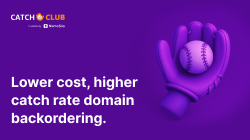- Joined
- Apr 5, 2005
- Posts
- 9,729
- Reaction score
- 1,311
There's a thread over in Domain News about a study I conducted, but since it's all about Adwords I thought I'd start a thread about it here...
Basically, I tested 3 URLs against each other, a totally generic URL, a quasi-generic URL, and a non-generic URL. All the other parameters of the ad campaigns were the same (ad headline, copy, max bid, landing page etc.) - only the domain names differed.
The result: using the generic domain name that was an exact match for the topic in question (electric bicycles) I was able to get up to twice the traffic as I was able to generate from the ad that used the non-generic domain, and it handily beat the quasi-generic too.
Here's a link to the full report, with charts, stats and graphs...
http://www.memorabledomains.co.uk/ppcanalysis.pdf
Incidentally, it's no longer possible to conduct this kind of test as Google has changed the rules so that you can only have one domain name per Ad Group - I just managed to scrape under the wire before they implemented the change, and collected quite a lot of data...
Basically, I tested 3 URLs against each other, a totally generic URL, a quasi-generic URL, and a non-generic URL. All the other parameters of the ad campaigns were the same (ad headline, copy, max bid, landing page etc.) - only the domain names differed.
The result: using the generic domain name that was an exact match for the topic in question (electric bicycles) I was able to get up to twice the traffic as I was able to generate from the ad that used the non-generic domain, and it handily beat the quasi-generic too.
Here's a link to the full report, with charts, stats and graphs...
http://www.memorabledomains.co.uk/ppcanalysis.pdf
Incidentally, it's no longer possible to conduct this kind of test as Google has changed the rules so that you can only have one domain name per Ad Group - I just managed to scrape under the wire before they implemented the change, and collected quite a lot of data...


















